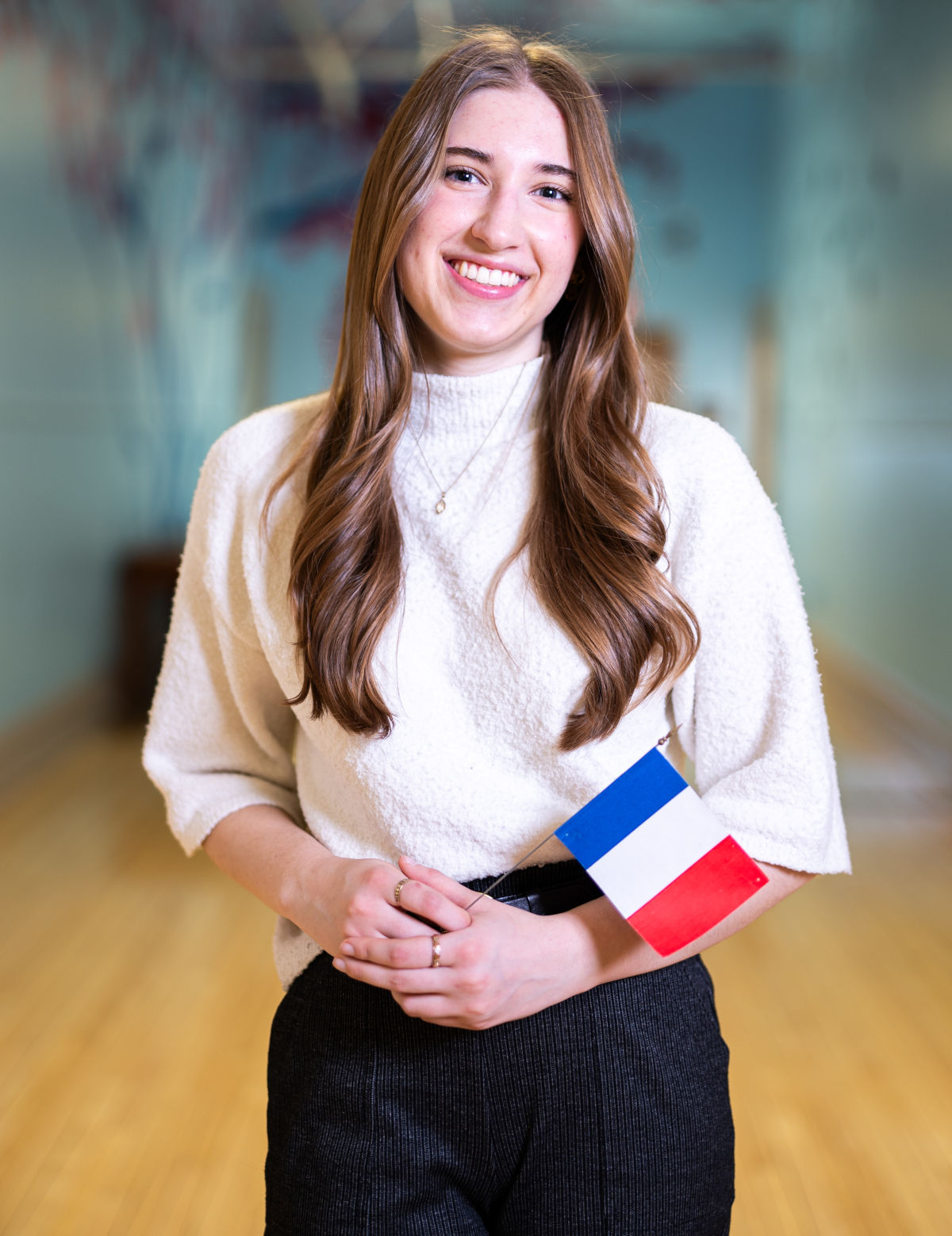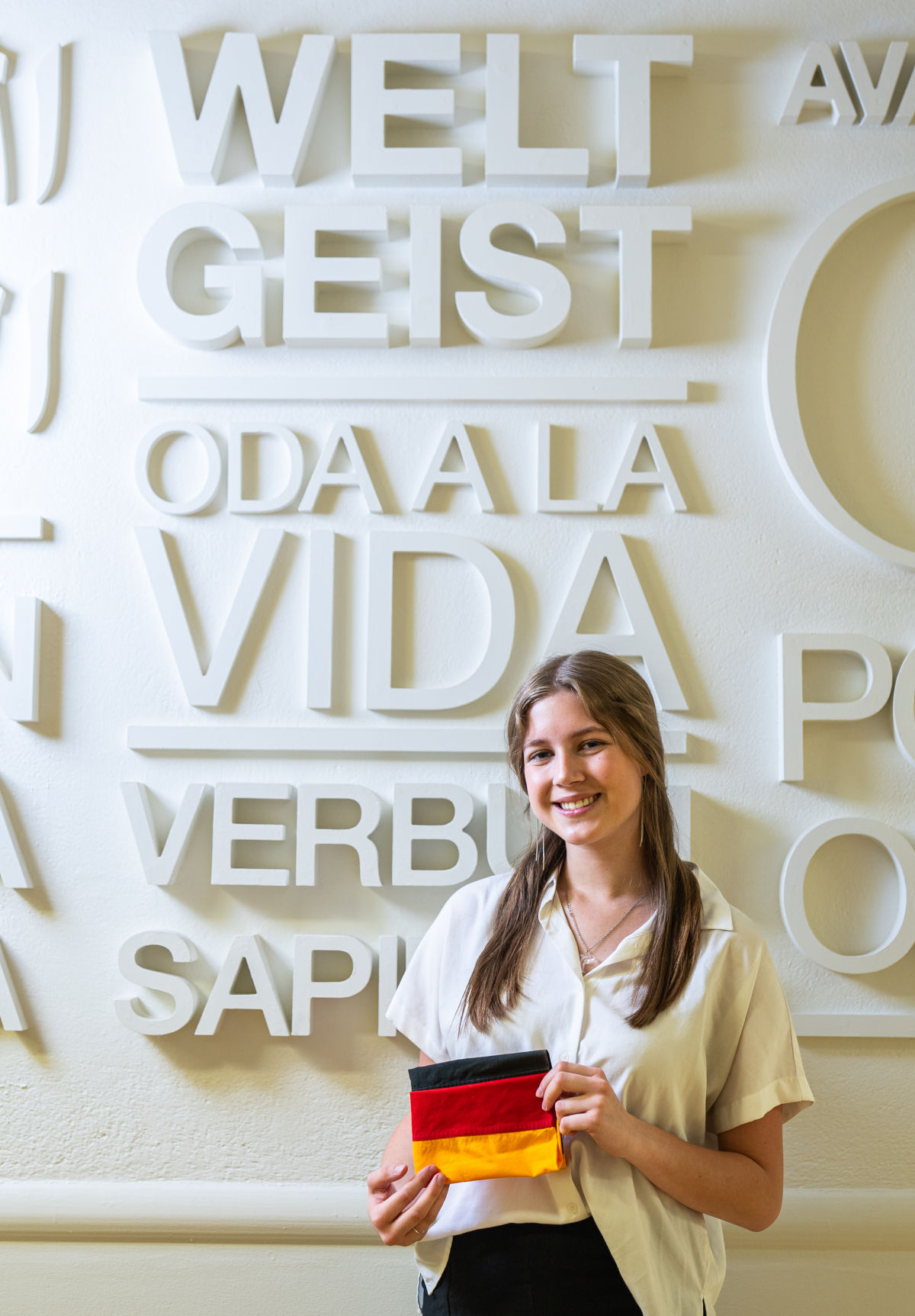U of I's School of Global Studies prepares students for international business
SGS prepares students to travel to, and successfully work in, countries all over the world
Senior Sarah Margaret Horn loves to talk — both in English and French.
Last summer, while studying in Pau, France, she found herself conversing in French with a Paris cab driver so well that he didn’t believe Horn was an American.
Had she been there to hear the conversation, School of Global Studies (SGS) Professor Rachel Halverson would have been proud.
Five years after the COVID-19 pandemic ushered in an era of online learning, wearing masks in class and limited foreign travel, U of I is seeing a renewed interest in studying foreign languages and traveling abroad through SGS.
The business world is international and anyone who speaks multiple languages and feels confident interacting with people with that second language is going to have an advantage. Rachel Halverson, German professor
“We definitely saw a drop in foreign language studies, but I think we are now back up to pre-COVID-19 levels,” said Halverson, a German professor. “One of the reasons SGS was created in 2022 was to get our students re-engaged in learning these languages and traveling to other countries to use what they learned so they could gain confidence in their skills.”
Although many students are interested in speaking a foreign language recreationally, mastering a second language also can help further career aspirations, especially in areas like government relations and international business.

Making a Deutsche mark
Freshman Zoë Lindner is fluent in German and Spanish and can also speak a little Korean. She spent two weeks in Germany with her father last summer and her family often talks about global politics at home.
But up until her junior year in high school, she thought she would study medicine in college. A conversation with her family before she came to U of I changed her course.
“My parents said they saw my face light up when we talked about geopolitics and languages,” said Lindner, who graduated high school in Yakima, Washington. “They told me my brain wanted to study medicine but my heart wanted to do international studies. They were right.”
Once in Moscow — she chose U of I in large part due to the Western Undergraduate Exchange scholarship she was awarded — she not only signed up for several language classes, but also became a fixture at The Martin Institute.
Interested in a political and/or diplomatic career track with her ideal job being in the U.S. State Department, Lindner is taking part in a Martin Institute-sponsored trip to Washington, D.C., in May to gain insight into the inner workings of international relations within the federal government.
Looking to fast-track earning her degree in Spring ’26, Lindner plans to complete her final courses online while living abroad, and using her refined German skills, during her last semester.
“Professor Halverson is amazing,” she said. “I had four different German teachers in high school, so when I got here, I was making some grammatical mistakes that didn’t get fixed at the time. She recognized them and helped me correct them. I’ve gotten lots of help from classmates, too. It’s a really supportive group.”

Magnifique
Horn, a senior from West Linn, Oregon, is a natural storyteller. When she first came to U of I, she was focused on telling stories through traditional musical channels like opera.
Originally a music business major, Horn needed to find a new path when music business was no longer offered. It was at that point she realized she wanted to find a way to use her love of connecting with people in the business world.
“Whenever I went to career fairs or spoke with professors about business careers, I got so excited,” said Horn, who will graduate with a degree in modern language business, which has recently changed its name to global business language studies. “I’m looking at going into marketing or branding. I think the fun thing about that is you get to decide how to help a business tell their story.”
Horn spent ten weeks in Pau last summer, obtaining U of I credits through their relationship with University Studies Abroad Consortium Programs.
With an interest in international business, Horn said French is a great language to speak if you want to work on the European side of the globe.
“The most common languages used in Europe are English, French and German,” she said. “There’s also a lot of emerging business coming out of Africa now, and French is one of the primary languages there as well.”

Larger local and regional businesses, such as Schweitzer Engineering Laboratories, Northwest River Supplies, Micron Technology and The J.R. Simplot Company, have overseas manufacturing facilities and/or offices.
The combination of language classes and College of Business and Economics classes in Horn’s schedule even blended her interest in international business and her love of music.
“I started talking with a record company that I connected with through Professor George Tanner,” she said. “I would be talking with their clients and helping advertise in Quebec. There’s a lot of translation work available in places like Quebec because everything has to be labeled in English and French.”
Horn’s pending opportunity reinforces the idea that being fluent in more than one language makes someone a valuable commodity.
“The business world is international and anyone who speaks multiple languages and feels confident interacting with people with that second language is going to have an advantage,” Halverson said.
Rachel Halverson
School Director, Professor of German
Article by David Jackson, University Communications and Marketing.
Photos by Garrett Britton, University of Idaho Visual Productions.
Published in May 2025.










